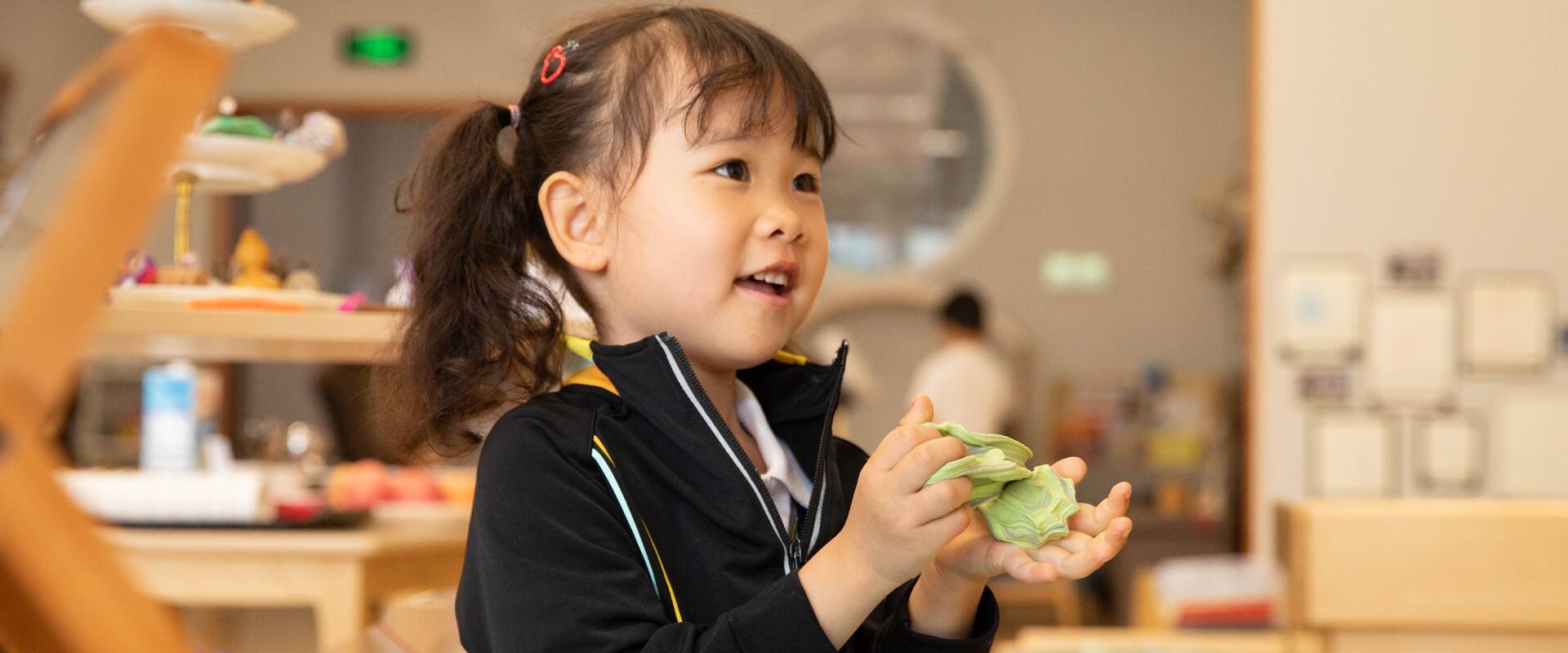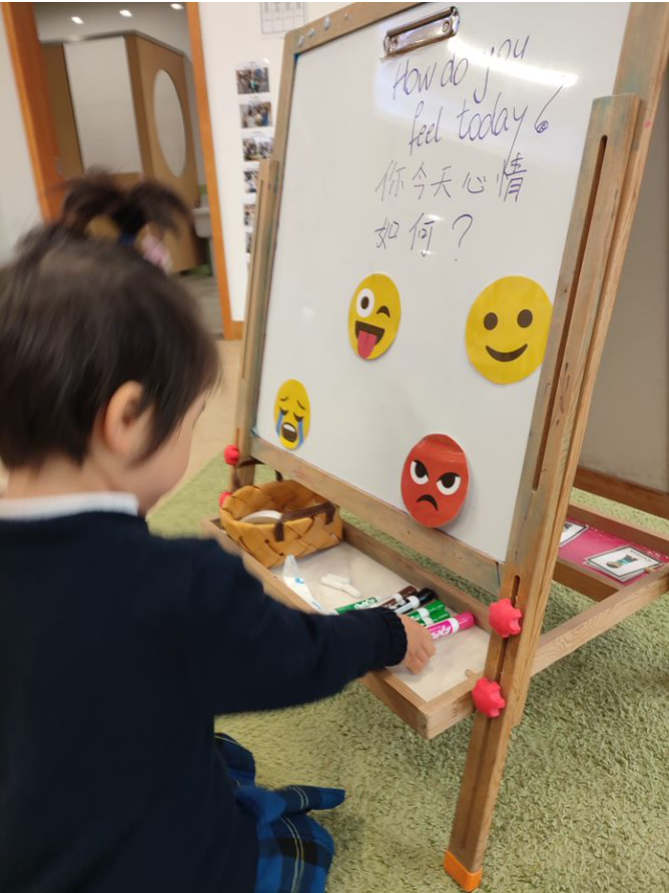
“I feel like a flying bird.” said a five-year-old girl when expressing how secure and happy she is.

Many are not strangers to phrases like “be a good child”, “that is not a reason to cry”. However, these phrases do not make our children brave or behave themselves; instead, they form a corner invisible to adults’ eyes where children’s emotional needs are neglected.
Many parents recognise the significance of emotions as one of the internal elements that drive action. Therefore, understanding, identifying and expressing one’s feelings effectively and determining the necessity for restraints help children and adults assuage anxiety and grow socially. These are what we intend to equip with our children gradually.



Perception of one’s inner feelings is at the core of this skill. Sometimes parents would ask children to give immediate feedback in words. However, it is worth noticing that although we want them to speak out, there is no need to rush to that goal as it often interrupts positive interactions with the child and will have countereffects.
Emotions of any kind usually lead to a chain of physical reactions, ideas, and actions. For instance, a child irritated by another child nearby who accidentally knocked over the tower he built will pose a tense posture with a clenching fist. First, he may think to himself, “That child knocked down my tower; it is not fair” Then he may have the feeling to react to that child. Therefore, learning the potential cause of behaviour helps us understand it objectively and patiently. Our time and acceptance form a bridge of communication with the child.

Here are some questions parents can ask for communication suggested by Dr. Lawrence J· Cohen, a psychologist.
How is your body feeling now?

